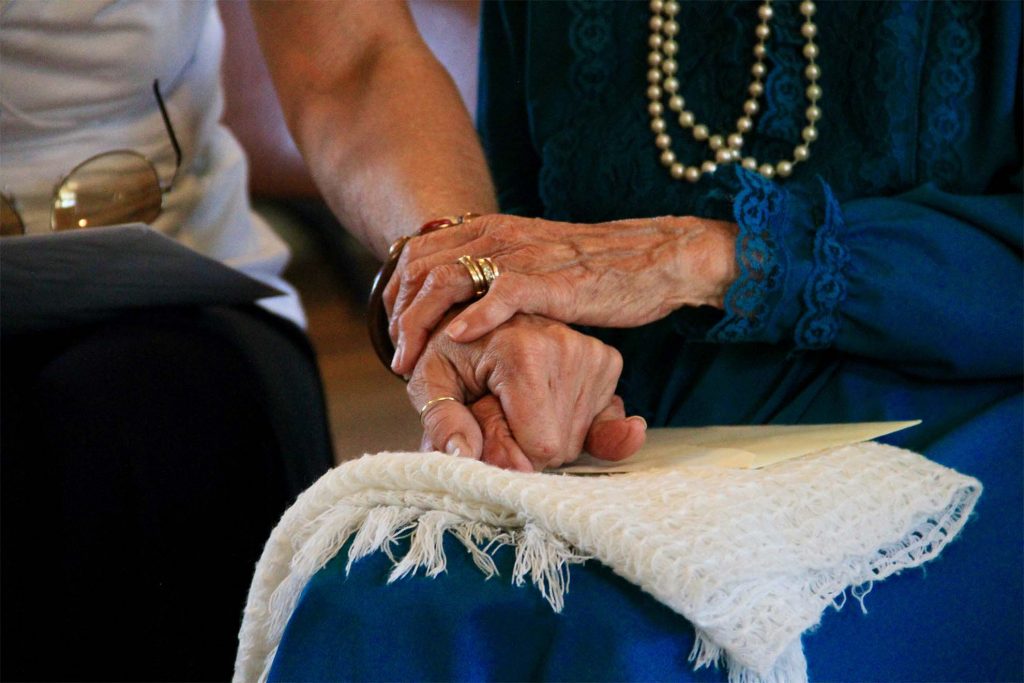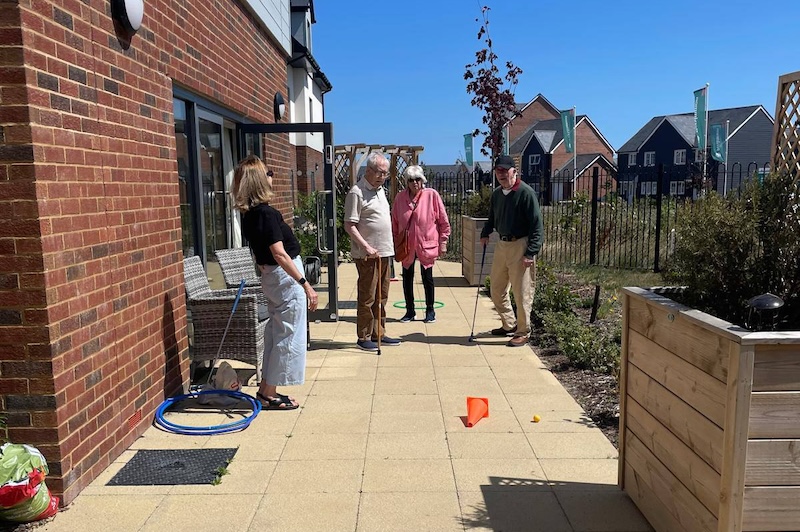What is Person Centred Care and Why is it Important?

Person centred care is all about focusing on the needs of an individual from ensuring their needs, values, clinical guide decisions and care in which is provided in a respectful and responsive manner, ensuring they have a choice in how they want all of the above to be delivered, by keeping the individual informed, they can contribute to their own safeguarding. Person centred care is very important, especially in care planning as it is essential due to the provision of high-quality care.
Some benefits of person centred care include:
- Flexibility - Instead of having a one-size-fits-all solution, individuals have the freedom to tailor care to their own needs.
- Responsibility - When individuals take responsibility to make their own decisions, they become more engaged and empowered.
- Autonomy - Individuals who are responsible for their own health become more inclined to make better lifestyle choices, for example, regular exercise and healthy eating.
- Independence - When you enhance the quality of an individual's care, they become less reliant on health services, meaning they’re able to remain independent for longer.
- Happiness - When an individual is receiving care most suited for their needs, they become less anxious, happier and more confident.

During this blog post, we will define personalised care whilst sharing examples, describing the benefits of person centred care and explaining why it is important.
What is Person Centred Care?
A person centred approach to care is where both health and social care services are all seen as equal partners in planning, monitoring and developing care, in order to meet an individual’s care needs. Working with a person centred approach means considering people's values, lifestyles and social connections. So, what does this mean in practice? The meaning of person centred care focuses on being compassionate, taking into account an individual’s point of view, and working together to develop personalised solutions. All of this goes beyond sharing decisions with individuals about their care, it enables that transformation from the nature of relationships between individuals and healthcare professionals. Overall, focusing on individual needs, rather than the needs of the service drives a better outcome for service users whilst reducing the service running costs.
Person Centred Values
Person centred values in care are guiding principles in which shape the way you deliver person centred care. When you follow these care values, staff are empowered to bypass hard processes and systems to then provide care which is specific to individual needs.
How many values are there in which support person centred care?
- Individuality - A one size fits all approach doesn’t work when it coms to providing care, each individual has their own belief, values, identity, choices and needs.
- Choice - Each individual is empowered to make choices about their care and support, they’re given information to make sure their choices are informed. For those unable to communicate with words, its essential for an alternative form of communication to be provided.
- Independence - Everyone is encouraged to be as independent as possible, helping individuals do as much as they can for themselves - this doesn’t mean leaving them t cope alone, but ensuring they have the right support where needed and when they want it.
- Dignity - Everyone should be treated with dignity, taking into consideration their ethical and moral beliefs - this means not making assumptions on how someone may want to be treated.
- Respect - Everyone should be treated with respect, conveying their values as an individual, meaning their titled to having their own opinions and feelings - even if others disagree.
- Rights - It’s important for everyones fundamental rights to be set out in The Human Rights Act 1998. This includes being kept safe from harm, ensuring they have the right to life, liberty, security and equality.
- Privacy - Everyone is entitled to their own private space and time. Privacy is so important in care, especially when it comes to personal hygiene or other intimate procedures. Likewise, access to any personal information should only be granted on a need to know basis, only with the individuals consent.
- Partnership - Every individual and their family members should be treated in partners when it comes to making decisions, especially about the care they receive. Overall successful partnerships are built on good communication and trust, meaning you listen to one another, valuing their perspectives.
The Person Centred Approach to Care
Person centred care approaches on focusing on working together in partnerships with the individuals plan to their care. Proper planning will ensure staff are aware on what is important to each individual, meaning they can act accordingly.
Some features when it comes to person centred care planning includes the following:
- The individual is empowered to identify their abilities and strengths, ensuring they can make their own decisions about whats best for them.
- Care plans are owned by the individual and therefore is written in first person.
- The individual also has full support over the choice they make.
- Care plans are 'needs led' not 'service led', meaning the support is designed to fit each individuals needs.
Examples of Person Centred Care
Person centred care examples are used to demonstrate how individuals are entitled to make their own informed choices about risks which are involved in their care and treatment. This all helps them to contribute to their own safeguarding, minimising the risk of negative, harmful or unfair treatment. These examples show an approach to treatment and care which therefore avoids paternalism (a feeling of dependancy and helplessness). This focuses on a more holistic, compassionate approach, starting from the perspective of an individual rather than the caregiver.
Here are some person centred approach examples:
- Ensuring individuals are physically safe and comfortable
- Considering individuals' preferences and chosen needs
- Placing individual values at the centre of care
- Providing emotional support, involving both friends and family
- Ensuring individuals have access to all the care they need, where they need it and when
- Making sure information is accessible, allowing individuals to make informed decisions about their care and support
- Adjusting the time for when an individual goes to bed, ensuring it suits them best
- Providing facilitates and amenities for those to perform daily tasks, from eats in the shower to devices to help with putting shoes on
- Ensuring you give individuals a choice of what to have for their dinner
It’s not about making decisions for people, it's about making those decisions with them.

Principles and Benefits of Person Centred Care
The Health Foundation has come up with four principles of person centred care for care providers, these are as flexible as can be depending on the circumstances, needs and preferences of the individual receiving care. Individuals change over time, what is important to one person could be unnecessary to another. So, what are the four principles of care?
Treat people with compassion, dignity and respect
Individuals can often lose their independence when they go into care, so it’s important to never forget that everyone who uses care services has their own thoughts, feelings, needs and opinions. Respecting an individual's choice empowers them to feel more in control, both mentally and physically, therefore leading them to gain more independence and create better outcomes.
Provide coordinated support, care and treatment
All care workers must be coordinated and care should be aligned, if not care services can become disjointed which leads to the understanding of individuals' personal needs and wants to be rebuilt from scratch. All carers should communicate effectively with one another, ensuring they maintain accurate, legible care plans and medication records, meaning a shared understanding across all services alongside maintaining confidentiality. Nowadays, digitising care plans is the best way to ensure all records are accessible to the entire care team along with being maintained and legible. Having electric records means updates are shared ensuring people aren’t using different or outdated versions. Likewise, if an individual requests change in regards to their care, it can all be exacted and acted on online, without requiring staff approval, ensuring opportunities increase and personalisation isn’t missed.
Offer personalised support, care and treatment
This is all about understanding, as what works for someone, may not work for someone else, therefore by having personalised care for each individual allows them to retain some freedom to fulfil their needs and wants. Whereas an overly standardised approach could hinder someone's ability to manage their condition correctly.
Enable individuals to recognise and develop their strengths and abilities
Individuals should be involved in decision making and care providers must encourage them to take actions in supporting themselves. This is useful for everyone.
Person Centred Practice
Person centred practice aims to ensure exceptional care becomes a reality, by implementing it into working practices, covering every aspect of the services such as writing care plans, initial care assessments, complaints and the overall relationships between staff and residents. When an individual is receiving care, staff should listen, gathering information about that individual, the information is then used to feed back into the cycle, exploring new options and evolving care plans, in turn, making the care even more person centred, with positive health and wellbeing outcomes.
How Caraway House Care Home Can Help You
Here at Caraway House Care Home in Selsey, we provide our residents with outstanding, compassionate care within Nursing Care, Residential Care, Dementia Care and Respite Care, all within a luxurious and homely environment. Life at Caraway House Care Home promises to prioritise our residents well being, supporting them in living their lives how they wish to, whilst encouraging them to make their own choices. We have a dedicated team that works hard to build relationships with our residents and their family members, ensuring all their needs and wishes are met. Thanks to our all-purpose built home, various felicities, amenities and care services, residents can pursue their passions, enjoying a happy, independent and fulfilling life.






